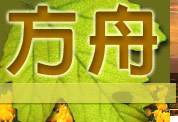A
B
C
D
E
F
G
H
I
J
K
L
M
N
O
P
Q
R
S
T
U
V
W
X
Y
Z
CROWN
(1.) Denotes the plate of gold in the front of the high priest's mitre (Exo 29:6;39:30). The same Hebrew word so rendered (ne'zer) denotes the diadem worn by Saul in battle (2-Sam 1:10), and also that which was used at the coronation of Joash (2-Kings 11:12). (2.) The more general name in Hebrew for a crown is _'atarah_, meaning a "circlet." This is used of crowns and head ornaments of divers kinds, including royal crowns. Such was the crown taken from the king of Ammon by David (2-Sam 12:30). The crown worn by the Assyrian kings was a high mitre, sometimes adorned with flowers. There are sculptures also representing the crowns worn by the early Egyptian and Persian kings. Sometimes a diadem surrounded the royal head-dress of two or three fillets. This probably signified that the wearer had dominion over two or three countries. In Rev. 12:3;13:1, 13: we read of "many crowns," a token of extended dominion. (3.) The ancient Persian crown (Esther 1:11;2:17;6:8) was called _kether_; i.e., "a chaplet," a high cap or tiara. Crowns were worn sometimes to represent honour and power (Ezek. 23:42). They were worn at marriages (3:11; Isa. 61:10, Isa. 61: "ornaments;" R.V., "a garland"), and at feasts and public festivals. The crown was among the Romans and Greeks a symbol of victory and reward. The crown or wreath worn by the victors in the Olympic games was made of leaves of the wild olive; in the Pythian games, of laurel; in the Nemean games, of parsley; and in the Isthmian games, of the pine. The Romans bestowed the "civic crown" on him who saved the life of a citizen. It was made of the leaves of the oak. In opposition to all these fading crowns the apostles speak of the incorruptible crown, the crown of life (James 1:12; Rev. 2:10) "that fadeth not away" (1-Pet 5:4, 1-Pet 5: Gr. amarantinos; 1:4). Probably the word "amaranth" was applied to flowers we call "everlasting," the "immortal amaranth."
|




